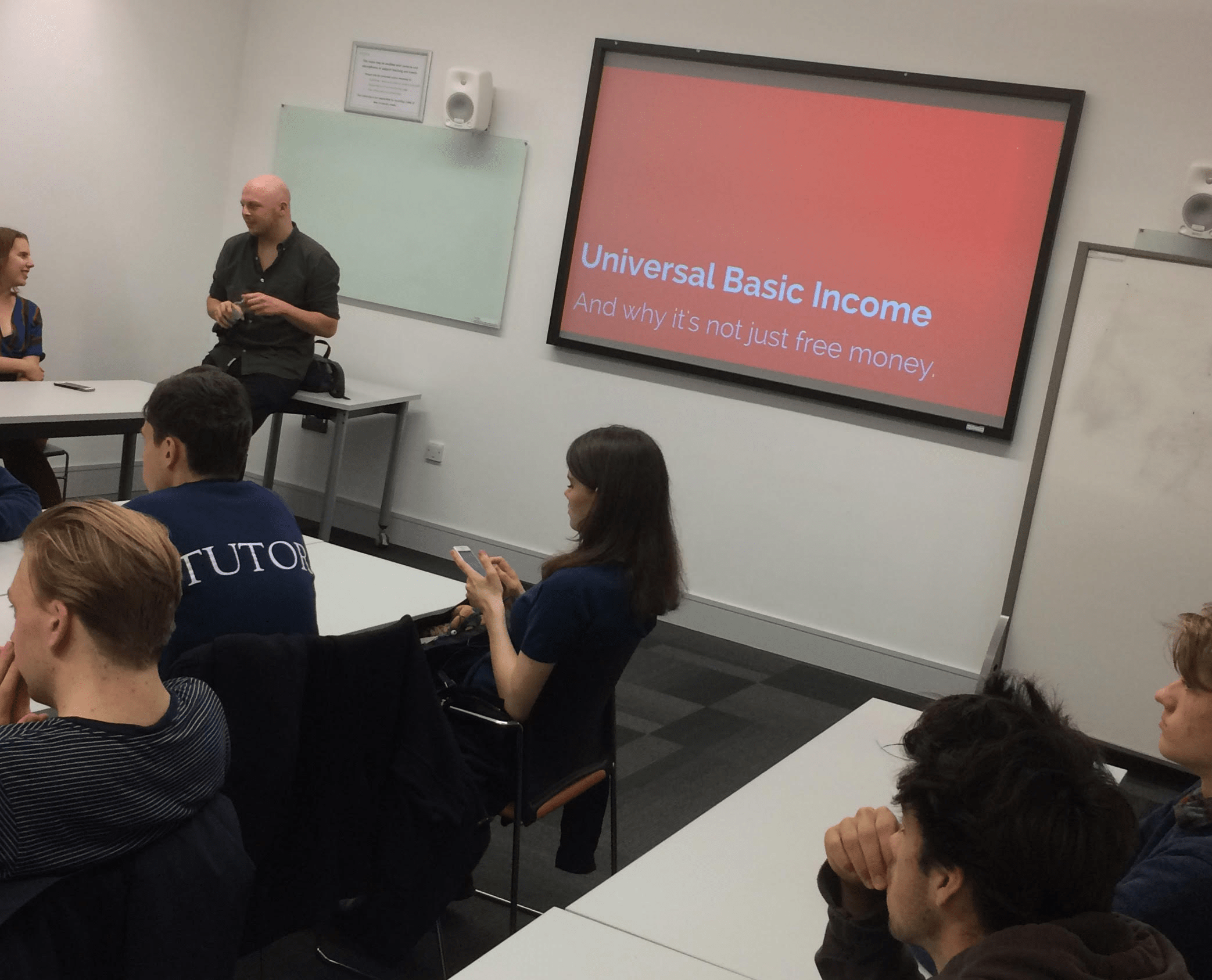
The debate surrounding the potential of Universal Basic Income (UBI) is a fascinating one and this was displayed at the recent Labour Students talk about it.
The first topic of discussion drew on why UBI should be talked about in mainstream political thought. It was shown that the concept had been proposed over centuries, from Thomas Paine’s belief in a “citizen’s dividend” in the 18th century, to an attempted policy by former US President Richard Nixon in the 20th. Current proponents of UBI include Facebook creator Mark Zuckerberg, innovator Elon Musk, and US politician Bernie Sanders, thus highlighting it is a policy taken seriously by influential actors in the Western world.
“the introduction of UBI to the UK could potentially empower the individual”
After the establishment of its importance in political thought, the Basic Income Earth Network provided a definition: an unconditional grant on an individual basis, without means testing or work requirements. Evidently then, UBI is a radical solution to attempt to help those less fortunate in society, by ensuring they receive income to survive weekly. It was shown, through a VICE documentary, at how Finland had trialled UBI, giving 560 euros a month to the unemployed. The impact had seemed to be positive; one man was able to start his own business through the extra income raised by UBI. It went against the assumption that giving citizens “free money” would make them lazy and unproductive. Therefore, the introduction of UBI to the UK could potentially empower the individual, improving their standard of living whilst allowing them to pursue amenities.
Furthermore, UBI trials have begun in several councils across Scotland, to see if the results are also positive to society, however, the debate reached a contentious point on how UBI would be funded on a wider-scale in the United Kingdom. There seemed to be no definitive answer on how the money could be raised without the dissolution of the current welfare state. Moreover, to achieve UBI, which would cost hundreds of billions of pounds, the NHS, pensions, and benefits would all be at risk of massive cuts. There was clear opposition to the dissolution of the welfare state to accommodate for UBI.
“There seemed to be no definitive answer on how the money could be raised without the dissolution of the current welfare state”
Other counterpoints to the introduction of UBI included the belief that there could be collusion between government and business, that the cost of living would be increased to reflect the increase of income.
Thus, whilst there seemed to be support for UBI generally, the costs and lack of conceptual depth meant that there was hesitancy on whether it is possible to introduce it in the UK, especially in the near future. However, despite this, UBI remains an interesting alternative to the current system and must be discussed further and deeper in order to become a more viable solution.


Average Rating